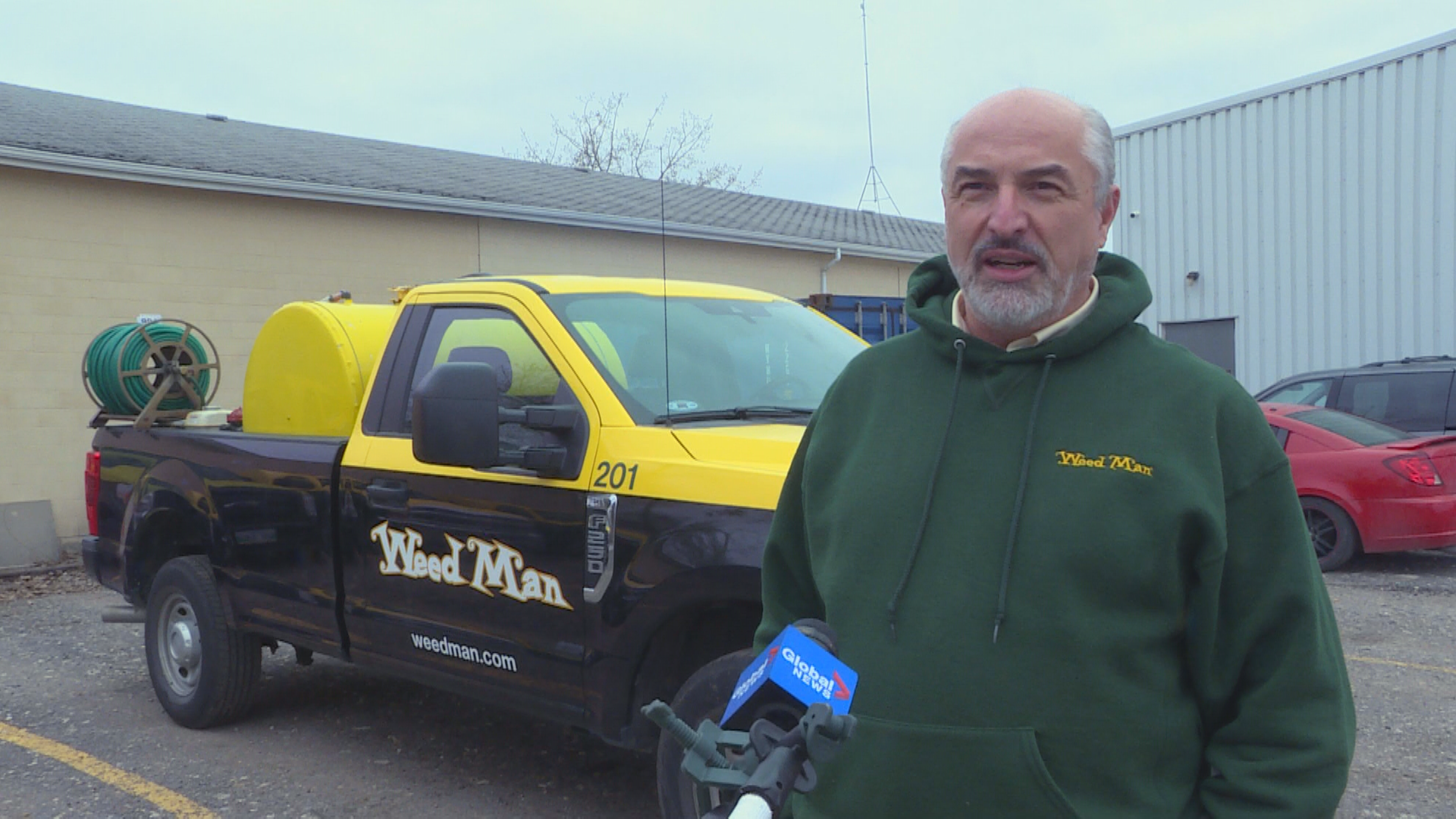It’s just about that time of year when dandelions and assorted weeds begin to show up in full force in fields, parks and front lawns.

Many Manitobans are struggling to keep them at bay after the NDP government banned the use of synthetic products like Roundup for nuisance weeds on lawns, patios and driveways in 2014.
“For us applying to lawns to control weeds like dandelions, plantain and thistle, we’re limited to a very few select products,” David Hinton, the president of Weed Man Winnipeg told Global News.
Because of the limited selection, following the rules has become more time-consuming and pricey for lawn care companies and homeowners.
“The only one product that really works that is registered by Canada is called Fiesta,” Hinton explained.
“It’s an iron-based product that works very well on the weeds but it needs more applications and you have to apply more of it. On top of that the product is very expensive to buy.”
The impact of those factors is causing many to break rules in favour of the herbicide used prior to the 2014 ban known as Par III.
“It was a provincial decision that was made, no one in this province can use Par III on your lawn, but that doesn’t mean you can’t have it in your garage. It just means you can’t use it on your lawn,” said Tim Muys of Green Blade Lawn Care on Kenaston.
According to health experts, even iron-based pesticides regulated for use in Manitoba may have unknown health risks.
“The availability of information on Fiesta as to the long term and chronic effects is not there,” said Dr. Jane McArthur, a campaign director with the Canadian Association of Physicians for the Environment.
“In Health Canada’s approvals for Fiesta, they waived the assessment process of pre-natal impacts,” continued McArthur.
More than four years after a campaign promise to launch a review into the current legislation surrounding herbicide use, the Pallister government hasn’t released one.
- Buzz kill? Gen Z less interested in coffee than older Canadians, survey shows
- Naloxone-resistant street drug linked to 9 deaths in Eastern Canada seized in Alberta
- Bird flu risk to humans an ‘enormous concern,’ WHO says. Here’s what to know
- ‘She gets to be 10’: Ontario child’s heart donated to girl the same age
In an email to Global News, a provincial spokesperson says the PC’s plan to conclude the study ‘in the coming months’ and more information will be provide when that happens.
Dr. McArthur says she would like to see more research on the products currently available for purchase.
“The impacts of pesticides and herbicides have been well documented in relation to both acute and chronic health issues including cancers, re-productive harms, birth anomalies, lowered fertility, neurotoxicity and developmental disabilities.”
“There’s whole range of health harms that are associated with pesticides and herbicides.”






Comments